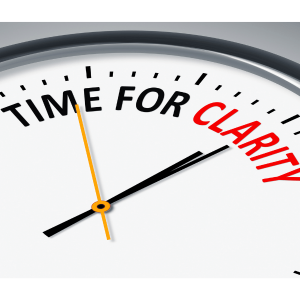Tips to improve your mental clarity

Having good mental clarity is important for overall well-being, as it allows individuals to be productive, confident, and resilient in the face of life’s challenges. Conversely, a lack of mental clarity can lead to confusion, indecision, and reduced cognitive function. By adopting healthy habits and practices, and seeking help if needed, individuals can support their overall brain health and improve mental clarity.
What is mental clarity?
Mental clarity refers to the quality of one’s thoughts, feelings, and perception. It’s a state in which the mind is clear, focused, and able to think and process information effectively. Mental clarity allows a person to make informed decisions, solve problems, and communicate effectively.
Factors that can impact mental clarity include stress, sleep deprivation, poor diet, substance abuse, and underlying health conditions. Mental clarity can also be affected by psychological factors, such as depression, anxiety, and burnout.
Here are 8 tips to improve your mental clarity:
Improving mental clarity involves adopting habits and practices that support overall brain health and cognitive function. Here are some tips to help you improve mental clarity:
Exercise regularly: Physical activity has been shown to improve cognitive function, increase brain connectivity, and reduce the risk of cognitive decline.
Get enough sleep: Adequate sleep is important for overall brain health, as it allows the brain to rest and repair itself. Aim for 7-9 hours of sleep per night.
Eat a healthy diet: Consuming a balanced diet that includes plenty of fruits, vegetables, lean protein, and whole grains can provide your brain with the nutrients it needs to function optimally.
Stay hydrated: Dehydration can impair cognitive function, so be sure to drink plenty of water throughout the day.
Reduce stress: Chronic stress can negatively impact cognitive function and mental clarity, so it’s important to find healthy ways to manage stress, such as meditation, yoga, or exercise.
Challenge your brain: Engaging in mentally stimulating activities, such as reading, puzzles, or learning a new skill, can help improve cognitive function and mental clarity.
Limit alcohol and caffeine: Excessive alcohol and caffeine consumption can impair cognitive function, so it’s important to consume these substances in moderation.
Get regular check-ups: Regular medical check-ups and screenings can help identify and address any underlying health conditions that may be affecting mental clarity.
Remember, improving mental clarity requires a holistic approach that addresses physical, emotional, and mental well-being. Making positive lifestyle changes and seeking help if needed can support your overall brain health and improve mental clarity.
Please book a 30-minute complimentary self-care coaching session below if you’d like to help improving your mental clarity by increasing your physical activity, improving your self-esteem, enhancing your nutrition, and relieving stress.
Embed calendar
